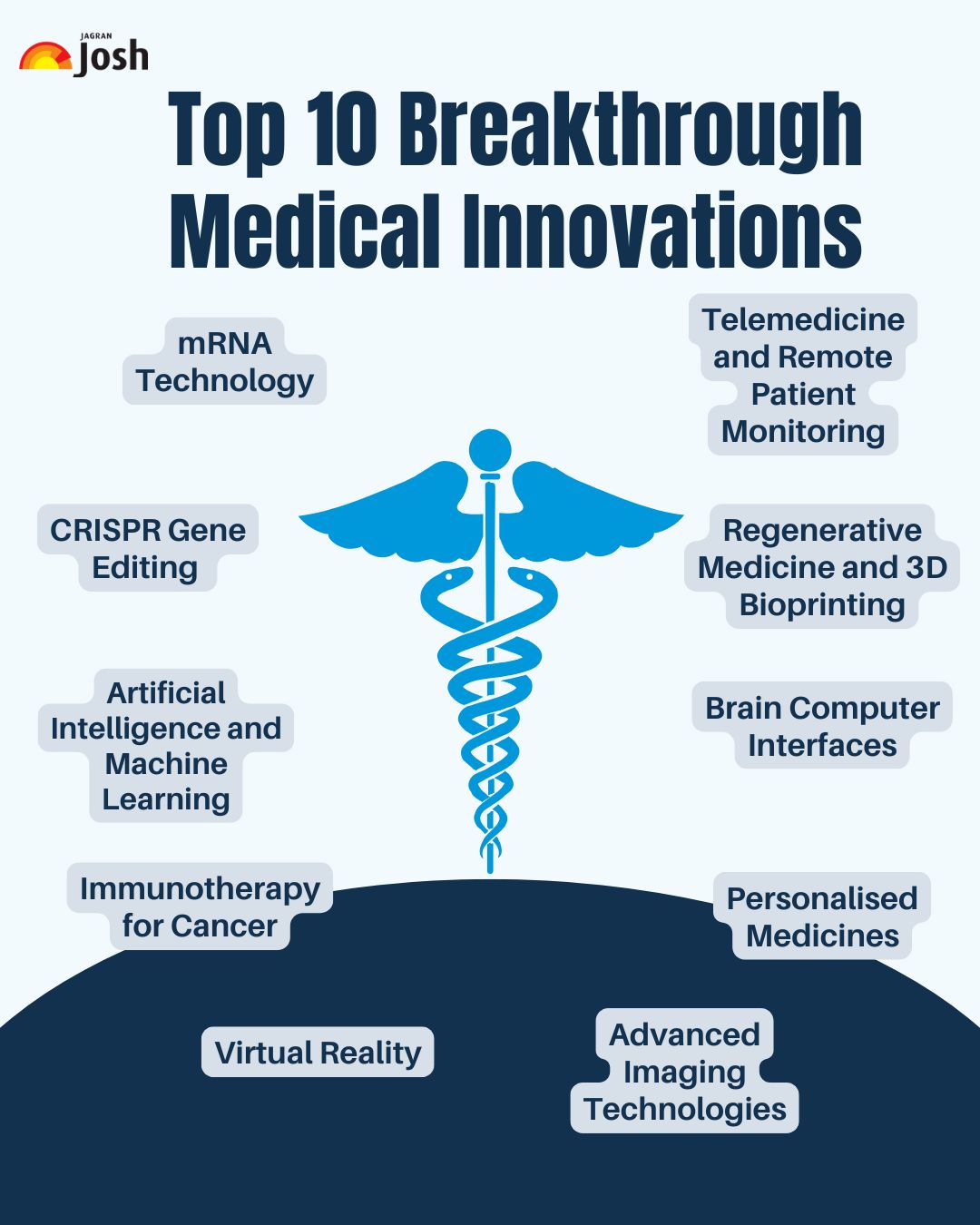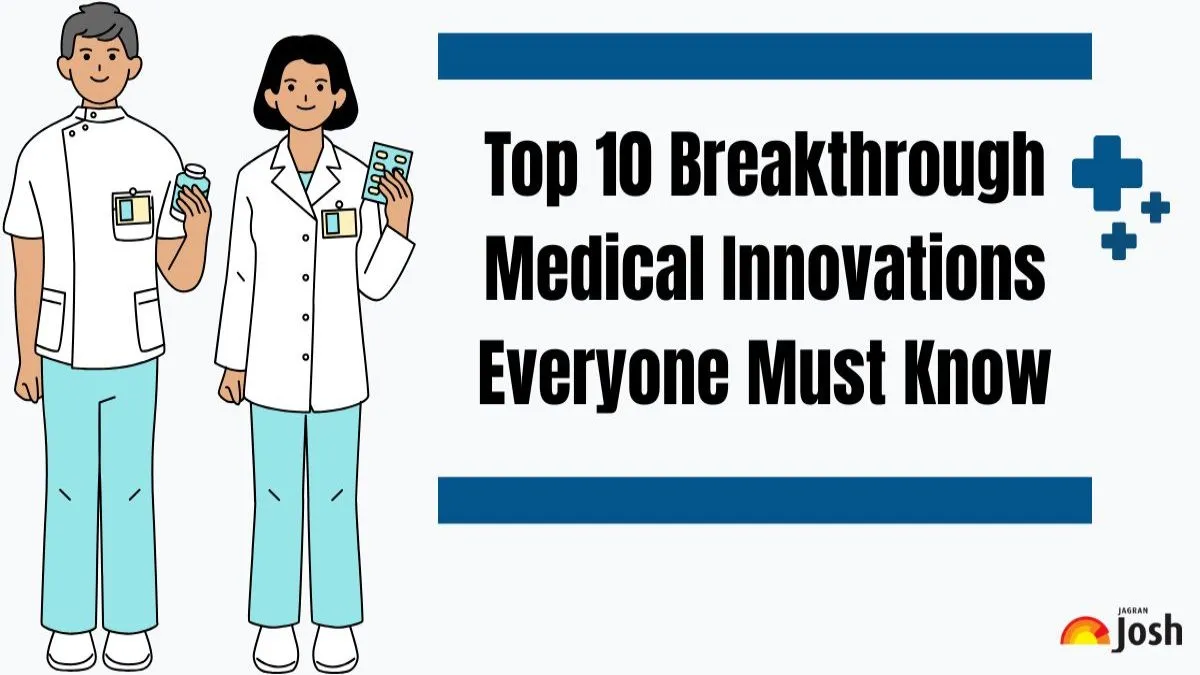Top 10 Breakthrough Medical Innovations: Medical Science is advancing at an incredible pace. This helps to bring forward the innovations that have the ability to save countless lives. Here are the top 10 medical innovations that can act as a breakthrough in the future. These innovations will make a significant impact in the future.

Top 10 Breakthrough Medical Innovations
-
mRNA Technology
This technology, initially developed for COVID-19 vaccines, can revolutionise vaccine development for other diseases as well. Not only this, they can also make personalised cancer treatments, which will be a huge step in the medical world.
-
CRISPR Gene Editing:
As the name suggests, this amazing technology can allow for precise editing of DNA. This, in turn, offers new ways to treat genetic disorders like sickle cell anaemia and cystic fibrosis. I mean, just wonder, if this is even possible? Well, with the latest technology-based advancements, anything and everything is possible.
-
Artificial Intelligence and Machine Learning:
AI is transforming healthcare in numerous ways. From more accurate diagnosis for diseases like breast cancer detection, lung cancer screening, and cardiac disease monitoring to predicting patient outcomes and personalising treatment plans, the AI-powered tools can analyse a large amount of data within seconds, leading to better insights and outcomes.
-
Immunotherapy for Cancer
An amazing approach in the medical field that harnesses the body’s immune system to fight cancer. It works by boosting the immune system’s natural ability to fight the cancer cells. How amazing is that!
-
Virtual Reality
Have you heard about this word a lot? What if I tell you that with the help of VR, one can treat and manage various psychiatric disorders and conditions, ranging from stress and anxiety to dementia and autism. This thing is still in experimentation, as there’s a lot of potential with VR.
-
Advanced Imaging Technologies:
With the advancement of AI and other technologies, doctors will now be able to see the internal structures of the body with unprecedented resolution. This will help them with earlier detections and a more precise diagnosis of many diseases.
-
Personalised Medicines:
As the medical technology proceeds with further advancements, it becomes more personalised to specific patients. These medications take into consideration an individual’s lifestyle, habits and genetics and environment. These medicines will be more effective as compared to the medicines we have right now.
-
Brain Computer Interfaces:
What if we told you that a computer can control your brain? Sounds shocking, right? Well, BCIs are the systems that create a direct pathway of communication between the brain and an external device, bypassing the body's natural motor pathways. These computers can translate brain activity into commands that can control external devices, offering new opportunities for individuals with disabilities.
-
Regenerative Medicine and 3D Bioprinting:
This field majorly focuses on replacing and regenerating damaged tissues and organs. 3D printing allows for customisation of prosthetics, implants, and even tissue and organ models, offering more tailored and accessible healthcare solutions.
-
Telemedicine and Remote Patient Monitoring:
Well, this technology is accelerated by recent global events like COVID-19, where patients can get virtual consultations and remote patient monitoring. This, in turn, expands access to medical care, especially in underserved areas, while the remote monitoring devices can track vital and other health-related data.
Other Related Links
